Have you come to a stop and stalled only to think, "why does my Jeep stall when I stop"?
Coming up to a stop and having your Jeep stall is embarrassing and dangerous.
Furthermore, it can be challenging to diagnose the problem yourself if you're not mechanically inclined or experienced. Still, you can take steps to educate yourself and isolate the issue.
So, why does my jeep stall when I stop?
A Jeep can stall when you come to a stop for various reasons.
These include a vacuum leak in the brake booster, a short in the powertrain control module, and a malfunctioning torque converter in the automatic transmission.
The following is a list of common reasons why your Jeep could be stalling when you come to a stop.
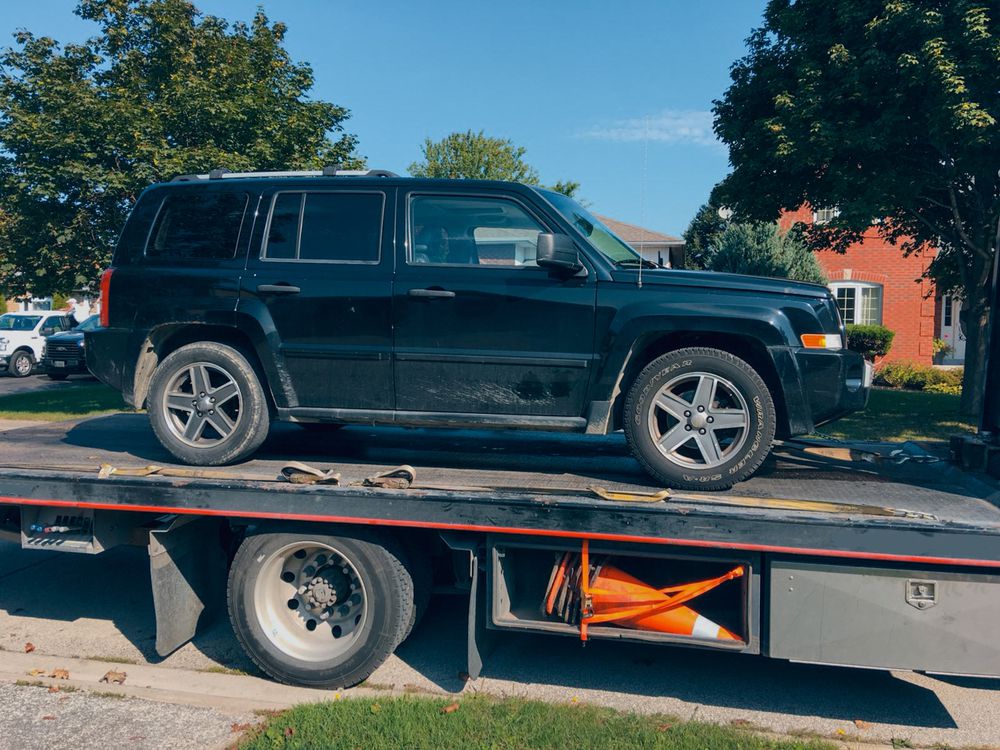 Jeep stalled and needing tow
Jeep stalled and needing tow
Malfunctioning transmission
In a vehicle with an automatic transmission, the torque converter is what transmits power from the engine through to the transmission.
If the torque converter is broken or worn or the transmission is low in transmission fluid, the converter will not work correctly.
The car will be unable to maintain pressure at low speeds, which will cause the engine to shut off.
A defective TCS (Torque Converter Solenoid) can also cause the same issue.
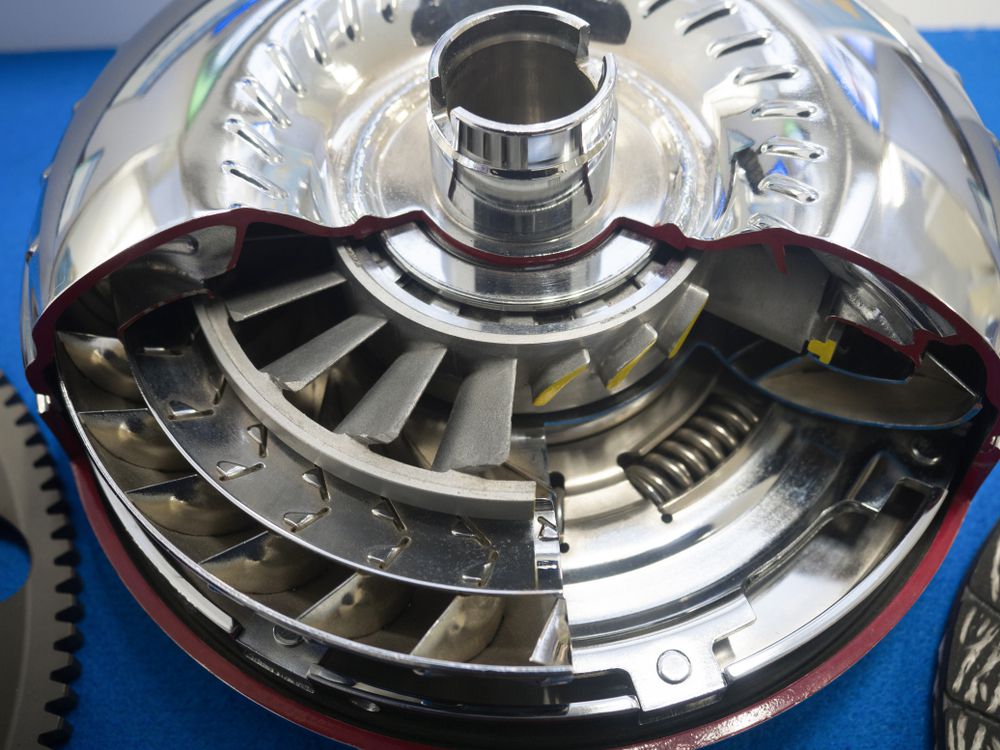 Torque Converter Cutaway
Torque Converter Cutaway
How To Diagnose A Torque Converter
As you approach a stop, put the transmission into NEUTRAL.
The torque converter is suspect if the vehicle doesn't stall with the transmission in neutral.
The fuel system would be a logical place to look if your Jeep is stalling when you come to a stop.
Worn Fuel Pump
The fuel pump is responsible for pumping the fuel from the gas tank to the engine and applying the pressure needed to inject the energy into the cylinders.
An intermittent pressure or a slight pause in fuel pressure could be enough to stall the engine at an idle, whereas while you are driving at high rpm, it doesn't matter as much.
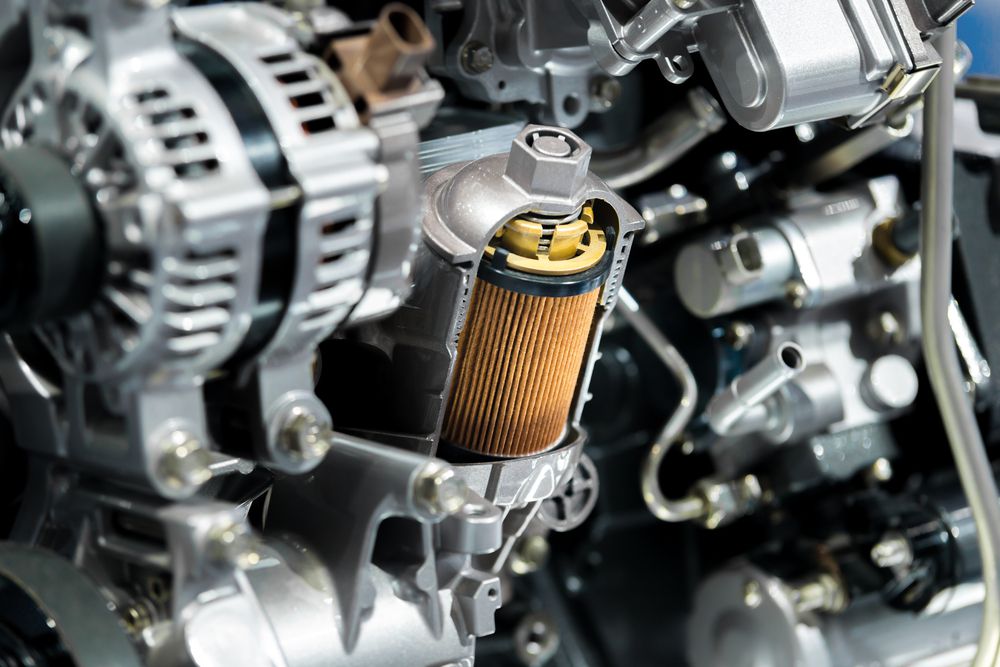 Fuel Filter Cutaway
Fuel Filter Cutaway
Dirty Fuel Filter
The fuel filter is between the engine and the fuel tank.
It filters out impurities from the gas, ensuring only clean gas gets to the injectors.
A clogged filter could prevent sufficient fuel volume from reaching the injectors resulting in your Jeep's engine stalling.
Bad Gas
Bad gas can cause a rough idle or stalling, directly by poor combustion or
indirectly by clogged fuel filters and fuel injectors.
A gas treatment will often remedy these problems.
Clogged Or Defective Fuel Injectors
If fuel injectors get clogged or quit working, the engine won't get sufficient fuel to the cylinder, and the engine won't fire.
Faulty Fuel Pressure Regulator
A faulty fuel pressure regulator will allow the fuel to bypass the injectors and return to the fuel tank.
Bad Oxygen Sensor
The oxygen (O2) sensor is mounted in the exhaust manifold to monitor how much unburnt oxygen is exiting the engine.
It tells the engine if the fuel mixture is burning too rich (too much fuel) or too lean (not enough fuel).
Cleaning the O2 sensor: Car manufacturers do not recommend cleaning the O2 sensor and are designed for replacement.
If you attempt to clean your O2 sensor, you could void your warranty, and something goes wrong with your vehicle later.
Troubleshooting the O2 sensor: generally, an O2 sensor will throw a trouble code to your OBD2 scanner tool if it malfunctions. Amazon has a multitude of OBD2 scanners at affordable prices like this one here (paid link).
Dirty Mass Air-Flow Sensor
The mass air flow Sensor (MAF) is located between the air filter and the intake on the engine.
The mass air flow sensor measures the amount of air entering the engine.
A faulty mass air flow sensor could affect your air-fuel ratio, which would affect how your vehicle idles at low speeds.
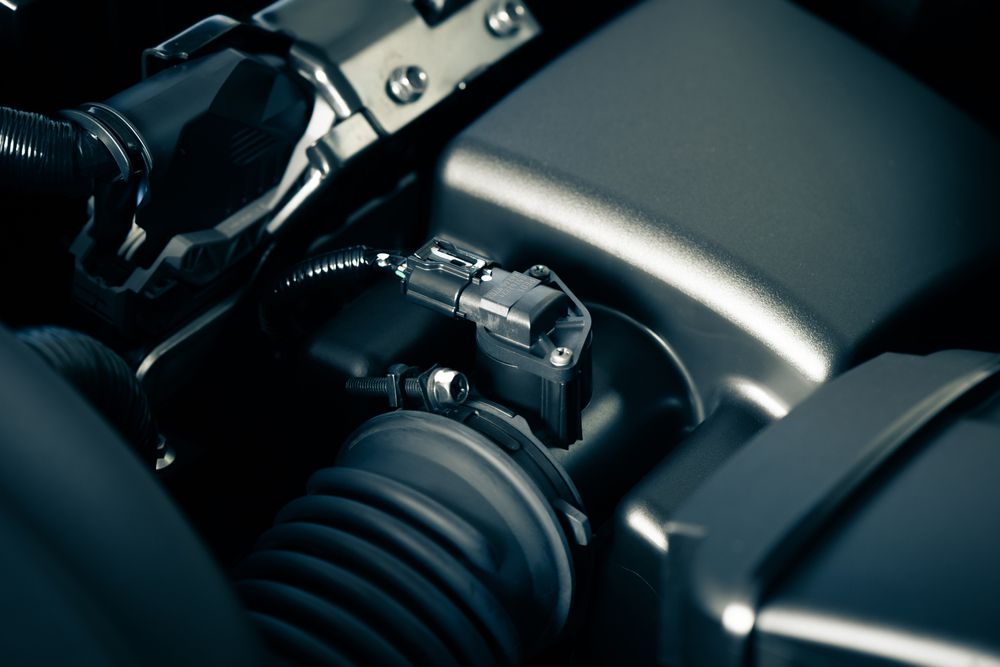 mass air flow Sensor
mass air flow Sensor
You can try unplugging the MAF sensor and seeing if it improves the idle. If your idle improves, it points to a faulty MAF sensor.
Cleaning your mass air flow sensor
You can clean a mass air flow sensor with either a carb cleaner or a special mass air flow cleaner that you can purchase at auto parts stores or online at Amazon.
Loose Or Corroded Wires In Wiring Harness
Check the wiring in the engine bay as it is commonly a cause of rough idle or stalls.
Take care to check around the exhaust manifold as wires can be melted and shorted out, affecting the ignition and PCM.
An inconsistently firing ignition could result in a stalled engine.
If the wires don't have a consistent, constant, and reliable connection with the ignition circuit, the vehicle can lose voltage quickly, and it won't have the power it needs to keep running as you slow down.
Faulty Idle Air Control Valve
When your Jeep is stopped and idling, the engine's throttle body valve is closed, not allowing air into the engine.
The air enters the engine through the idle air control valve, which opens or closes depending on temperature, altitude, etc., to ensure the car idles well.
If the idle air control valve is damaged, clogged up, or enough power isn't reaching it to open, your Jeep won't idle well.
You can use carb cleaner to clean out any gunk built up around the valve.
Clogged Or Restricted EGR Valve
The EGR ( exhaust gas recirculation) valve recirculates exhaust, typically 5 - 15% of it, back into the combustion chamber to increase the specific heat capacity of the contents in the combustion chamber.
The EGR system reduces Nitrous Oxide emissions.
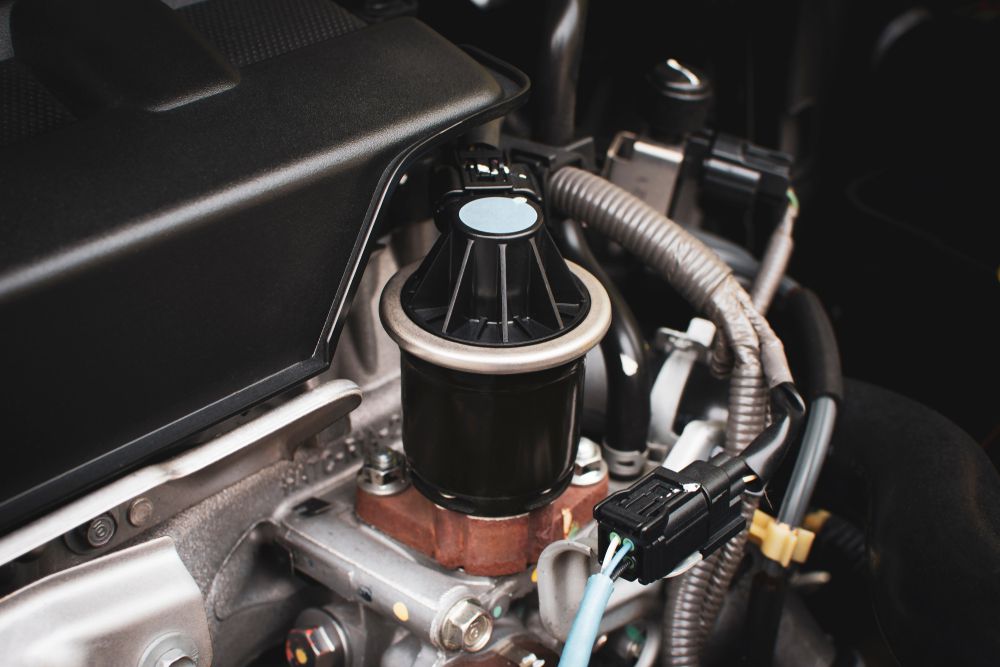 EGR Valve
EGR Valve
If your EGR valve is clogged or gummed up, it can cause it to stay stuck open or closed, wreaking havoc on your fuel economy or even causing your car to stall when you come to a stop.
Cleaning The EGR Valve
You can clean the EGR valve with carb cleaner, which will get it back to good condition if it is down.
If it is defective, it will have to be replaced.
Faulty Crankshaft Position Sensor
The crankshaft position sensor monitors the position or rotational speed of a crankshaft within an engine.
This information is used by the car's computer to control your fuel injection and ignition system.
It can work in conjunction with a camshaft sensor to monitor the relationship between the piston and the valves in the engine.
Faulty Throttle Position Sensor
The throttle position sensor senses the position of the foot pedal in the vehicle.
It gives the output to the computer, which controls how much to open the throttle on the engine And, in turn, control the airflow and entering the engine.
Faulty Camshaft Position Sensor
Jeeps are known to have a problem with the camshaft position sensor.
As a result, they commonly cause rough idling or stalls when stopped if they go bad.
Vacuum Leak
In an internal combustion engine, the pistons act as plungers sucking oxygen through the intake manifold into the cylinders.
Some engines take advantage of the Vacuum at the intake manifold to power engine accessories.
Rubber hoses are used to connect the accessories to the intake manifold.
These hoses can develop cracks that leak. When these cracks leak, excess oxygen is allowed into the intake manifold, which can cause problems with idling, possibly causing your Jeep to stall.
Brake Booster Vacuum Leak
The brake boosters on some Jeeps are known to develop internal vacuum leaks, which can cause your vehicle to stall at idle.
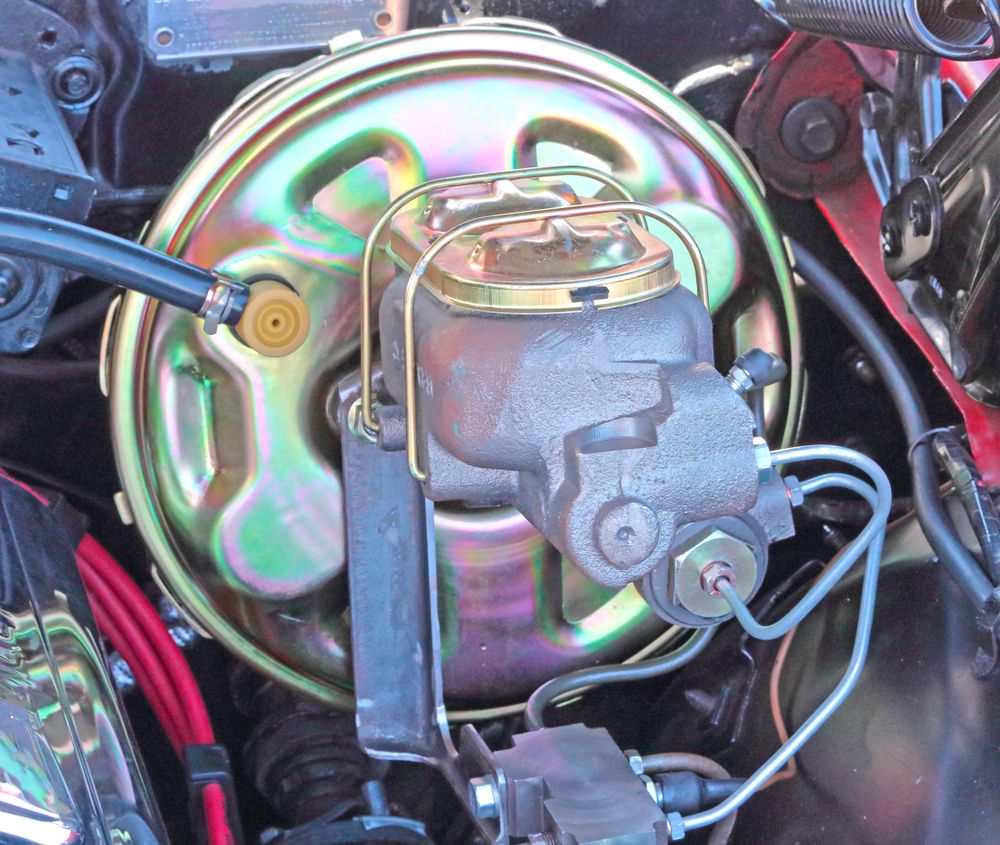 Brake Booster
Brake Booster
To troubleshoot the brake booster, disconnect the big vacuum hose running to it and plug it off. Then, start the Jeep and see if the problem goes away.
You could drive the Jeep while the vacuum hose is disconnected to test it, but I don't recommend it.
You will need many times the force to stop your vehicle as you typically would if the booster was connected and it would be unsafe.
Second-hand Mopar brake boosters are available online for around $50, but it is preferable to buy a brand new Factory brake booster, and they cost about $250.
Vapor Lock
Vapor lock occurs when the fuel changes from a liquid state to a gas state while the fuel is still in the fuel delivery lines running to the engine.
Vapor lock disrupts the flow of fuel to the engine resulting in loss of power or even stalling.
Restarting the engine in this state may be difficult; sometimes, you must wait for 5 to 10 minutes until the system cools down and the gas vapor turns into a fluid again before restarting the engine.
Winter fuel blends are more prone to vapor lock due to their lower boiling point, as are fuels with a high ethanol concentration.
Shorting Out PCM
The PCM (powertrain control module), the vehicle's "brain," is known to short out on many Jeep models.
The PCM consists of the ECU (engine control module) and the TCU (transmission control module).
Troubleshooting The PCM
The screws in the PCM unit are too long.
So when you're coming to a stop, or perhaps turning, the vehicle can flex, and the PCM can shift and move.
When this happens, the end of the screws in the PCM can contact the vehicle and short out, causing the vehicle to stall.
A solution is to add about a quarter of an inch of washers to the top of the screw and reinstall the screw.
This leaves less of the screw poking through the bottom.
In Conclusion
There can be many reasons why a Jeep would stall when it comes to a stop.
Work your way through the various solutions above to determine the cause of your engine stall.
The process will educate you on the probable causes before bringing it to the mechanic's shop.